Worried by the incessant killing of soldiers by terrorists and other criminals in some parts of the country, especially the North, some retired army generals have called on the concerned authorities to urgently halt the dangerous trend.
It was gathered that no fewer than 714 soldiers had been killed by terrorists in the last 18 months, while several others had suffered varying degrees of injury. This, coupled with the worsening insecurity in the country, was described by the ex-generals as disturbing.
They stressed that the killing of soldiers, who were grossly inadequate to confront the widespread insecurity in the country and should be protecting civilians and the territorial integrity of Nigeria, could not be allowed to continue.
A report by a geopolitical intelligence platform, SBM Intelligence, revealed that no fewer than 642 soldiers were killed between the fourth quarter of 2020 and the third quarter of 2021. While about 72 soldiers have so far been killed by terrorists this year.
A retired Brigadier General, John Sura, described as unacceptable the way soldiers were being killed by terrorists, saying there was a need for the troops to be equipped with modern technologies to protect themselves and win the war. He also stressed the need for synergy between the security agencies.
Sura stated, “It’s pathetic and terrible; the troops are doing their best because they have no equipment to notice terrorists from afar before they come under attack. It is painful and it is discouraging. I think the Federal Government must help them with modern technologies that can be able to detect and take these people up.
“They (the terrorists) are already taking the battle to the armed forces, which is not too good. Nobody is happy that people, who have risen to protect Nigerians, are losing their lives. As retired military officers, we are not happy with what is happening in the country in terms of security, because the institution of the military, which we served selflessly and what has given us a name as a country, is being seen as failing in its responsibility. As it is, the country is almost being consumed by insecurity.
“What has happened to the A-29 Super Tucano fighter jets purchased by the Federal Government? Why have they not deployed the fighter jets to neutralise the insurgents so that Nigerians can have peace?
“Yes, the military cannot be everywhere and that is why we have the National Intelligence Agency, the Department of State Services and others, who should network, synergise and provide intelligence that will help to track these people wherever they may be.”
He said the Federal Government should reconsider hiring mercenaries as the previous government did.
“The previous administration hired foreign mercenaries and they were almost winning the war against terrorists, but that approach was dropped when the present administration came on board. I think that rather than waste resources that may not get the desired results, why not bring these mercenaries back, pay them and let them trash the terrorists in Nigeria. They may be able to deliver on the task because they will be paid for it,” Sura added.
Another retired officer, Brig.-Gen. Jon Temlong, said it was disturbing that soldiers and civilians were being killed, but that soldiers losing their lives could be tied to the asymmetric nature of the war.
Temlong, who is a former Commander, 23 Armoured Brigade, Yola in Adamawa State, expressed dissatisfaction over the attitude of some Nigerians towards assisting the military to overcome the security situation in the country.
He said, “What some people don’t know is that the military is fighting asymmetric warfare. In this kind of warfare, you don’t know the enemy. The enemy can even greet you and pass, and because you don’t know him as the enemy, you can’t deal with him as such. The same people who greeted you and went their way can assemble themselves and come back to attack you.
“It pains me what the military is going through and nobody cares, forgetting that they are also Nigerians with families, who are daily putting their lives on the line for the sake of the country. So, it is the citizens who have taken arms against the people. They know them.”
The retired general, who was once the Commander, of Multinational Joint Task Force, Baga, said unless the citizens started isolating the terrorists, the solution to the problem might not be in sight, adding, “So, there is the need for synergy, especially between the federal, state and the local governments. The strategy in dealing with the security situation we are facing is government and civil approach.”
Similarly, a former Military Administrator of the defunct Western State, Major General David Jemibewon (retd.), described the development as worrisome and advised the government to launch a high-powered investigation.
He told one of our correspondents in an interview, “My reaction here is most similar to the reaction of anybody who likes peace and order in society. Those in authority should know that we have to tighten our belt and ensure that the country is more secure than before.”
He said contrary to the belief of the perpetrators, the attacks would not portray them as courageous but stupid, adding, “I wouldn’t say that it is an act of courage, I will say it is stupidity,” noting that the attackers must have been under the influence of drugs.
Speaking on how to prevent further attacks, Jemibewon stated, “The government should carry out a high-powered investigation and the military needs to raise the level of alertness. We must be alert and prepared to salvage our country from irresponsible people and we must take up that responsibility.”
The Commandant, Amotekun Corps, Osun State, Brig.-Gen. Bashir Adewinbi (retd.) also described the killing of soldiers as worrisome, saying there was a need to increase intelligence gathering to address the situation. He expressed confidence that Nigerian soldiers were properly trained and would perform creditably if they had better equipment.
He said, “It is a very worrisome situation and the Chief of Defence Staff and the President are taking drastic measures. I believe there will be an improvement. They are strategising and are doing everything possible to secure the country.
“However, they need to gather more intelligence to enable them to ameliorate the situation. I know they are brainstorming on this and I believe something positive will come out of this.
“I am worried, but it is one of those things in a democratic set-up. If you look at it, there could be political, economic and other social reasons for the insecurity. The problem is not peculiar to the Nigerian Armed Forces, but they are rising up to the task.”
Meanwhile, the SB Morgen Intelligence report indicated that 642 military personnel were killed. It noted that within the period under review, 322 police, 11 personnel of the Nigeria Security and Civil Defence Corps, five Customs officers, two operatives of the Department of State Services, two Immigration officials and an official of the Federal Road Safety Corps were killed by criminals.
As of 2021, reports said there were about 30,000 bandits – now designated terrorists – across the North. But according to the SBM report, 1,989 bandits and 973 Boko Haram fighters were killed within the period.
Among the series of attacks against troops, on April 6, 2022, it was reported that terrorists killed 17 soldiers during an attack on a military base in Pole Wire, Birnin Gwari Local Government Area of Kaduna State.
“About 40 fatally wounded soldiers were brought in to the 44 Army Reference Hospital and 17 of them were confirmed dead,” a source told The PUNCH.
On the night of Thursday, March 31, terrorists also killed six soldiers in the Suleija-Zuma area of Niger State.
On March 9, bandits killed 19 security personnel, including 13 soldiers, in Kanya, a village in the Danko-Wasagu area of Kebbi State.
In February 2021, 20 soldiers were killed by the Islamic State West Africa Province-backed faction of Boko Haram in Marte town.
Among several others, in April 2021, 11 soldiers were killed in the Bonta community, Konshisha Local Government Area of Benue State, by bandits. They were buried in the state capital by the military.
AGF office keeps mum over the naming of terrorism financiers
Meanwhile, despite the rising insecurity in the country, the Office of the Attorney-General of the Federation, Abubakar Malami, SAN, has yet to name the financiers of terrorism in Nigeria.
The Attorney-General of the Federation and Minister of Justice, Abubakar Malami, has been under pressure to name and shame the financiers of terrorism in the country.
When asked recently during an interview on Channels Television, Malami promised that in a few weeks Nigerians would “get something tangible” from him in that regard, but he has yet to do so.
Similarly, the Minister of Information and Culture, Lai Mohammed, disclosed at a press conference in Abuja on February 4 that the Nigerian Financial Intelligence Unit had uncovered 96 financiers of terrorism as well as 424 associates and supporters of the alleged financiers. Their identities were also not disclosed.
While the Nigerian authorities refused to name the financiers despite the worsening insecurity, the United States Government, on March 25, named six Nigerians for their support for the Boko Haram terrorist group.
The US Department of the Treasury’s Office of Foreign Assets Control gave names as Abdurrahman Ado Musa, Salihu Yusuf Adamu, Bashir Ali Yusuf, Muhammed Ibrahim Isa, Ibrahim Ali Alhassan and Surajo Abubakar Muhammad.
The Special Assistant to the AGF, Dr Umar Gwandu, had earlier told one of our correspondents that the financiers of terrorism would be unveiled in court, but he refused to state when that would be done.
Despite multiple calls and messages sent to his WhatsApp number, which were read, Gwandu declined to comment on the issue.
Delay in prosecuting terrorists, a bad signal – SANs
Speaking about the issue, a Senior Advocate of Nigeria, Ebun-Olu Adegboruwa, said shielding the financiers of terrorism would not help in the fight against insecurity.
He said, “The challenge we have is the manner in which the government is treating the issue of terrorism with seeming preferential treatment. We know that in the case of the Indigenous People of Biafra, the AGF quickly got the Federal High Court to declare the members as terrorists.
“As we speak today, the United Arab Emirates has listed some people, who are said to be sponsors of Boko Haram, and they are Nigerians, and this has not been denied by the Federal Government.
“If we do not take steps to combat terrorism, with all the Tucano jets that are not being used, it will create an impression that this regime is producing terrorists, either to foment violence during elections or for the purpose of keeping itself in power after 2023.
“Otherwise, there is no justification why they are yet to be tried in court and why their identities have not been revealed. I believe it is dangerous for us and it has emboldened the terrorists. Not naming them will not help the matter at all.”
Another Senior Advocate of Nigeria, Lekan Ojo, said unmasking the financiers of terrorism would convince Nigerians that the government was serious about combating insecurity.
He stated, “The government should unmask and bring these financiers to justice as soon as possible. That will assuage the feelings of Nigerians, who have rightly or wrongly contended that the government is not dealing decisively with the terrorists and their financiers.
“The financiers are as guilty as those they are financing. I am sure no responsible government will arrest these people and refuse to arraign them before a court of law.”
However, Adewinbi said the Federal Government could have its reasons for the delay, noting that the investigation could still be ongoing.
“If they think that prosecuting them now will scale up to other activities, they will want to conclude their activities before they do anything,” he added.
Sura was, however, of the view that the financiers must be punished to put an end to the crime while calling on the Federal Government to hasten their prosecution.
He added, “In any society, when someone has not been seen to have been punished for a crime, it will encourage other people to go ahead and commit that crime, but when you punish an offender, it serves as a deterrent to others.
“For me, I will suggest that the Federal Government or whoever is responsible should expedite action and ensure it is seen by everyone. It will discourage people from committing the offence.”
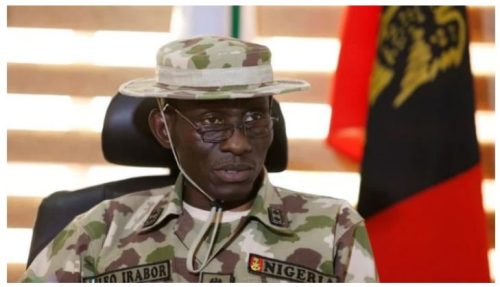

 BIG STORY4 days ago
BIG STORY4 days ago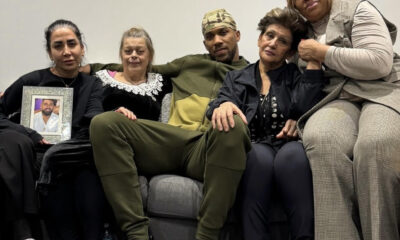
 BIG STORY24 hours ago
BIG STORY24 hours ago
 Uncategorized5 days ago
Uncategorized5 days ago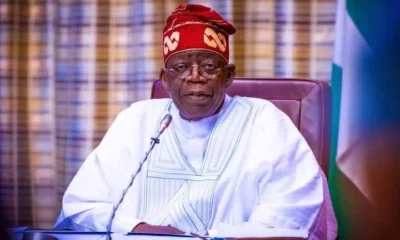
 BIG STORY4 days ago
BIG STORY4 days ago
 BIG STORY5 days ago
BIG STORY5 days ago
 BIG STORY1 day ago
BIG STORY1 day ago
 BIG STORY5 hours ago
BIG STORY5 hours ago
 BIG STORY3 days ago
BIG STORY3 days ago






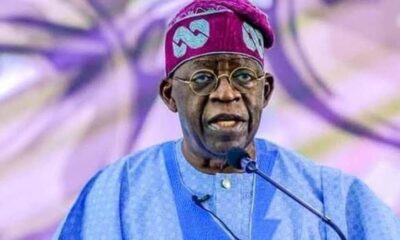

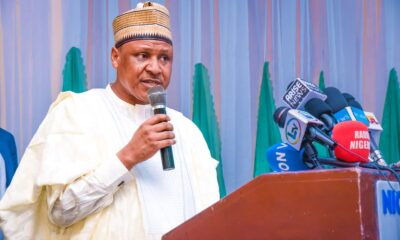

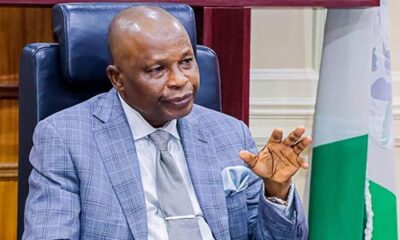

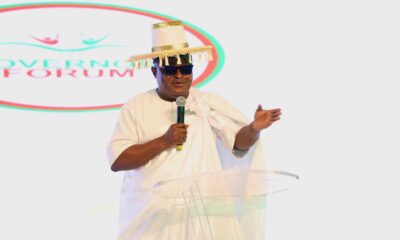

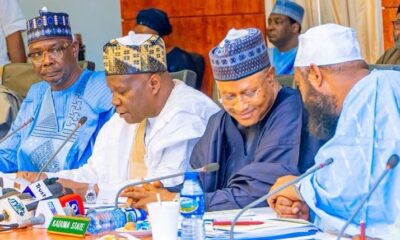








Pingback: Lagos Policeman Caught Smoking Weed, IGP Orders Probe